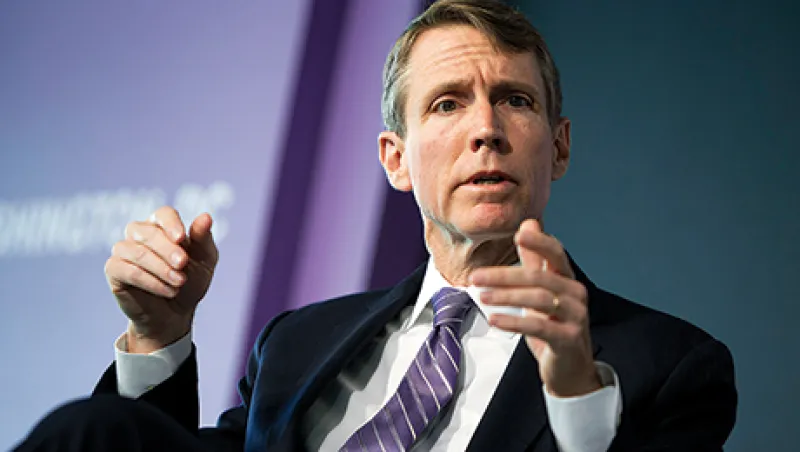
Tim Adams Brings Sharper Focus and Softer Elbows to the IIF
The president and CEO of industry lobbying group the Institute of International Finance strikes a conciliatory tone when it comes to global regulatory reform.
Tom Buerkle
October 9, 2013


